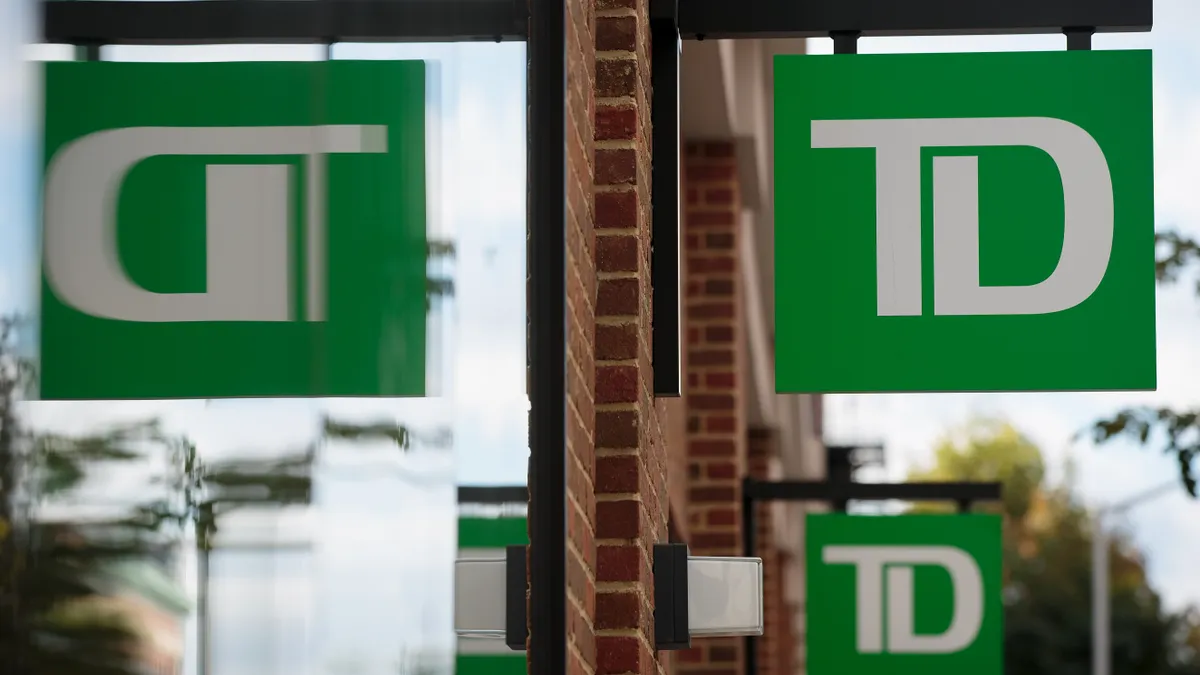TD plans to open 150 U.S. branches by 2027 and double its hiring of wealth advisers, CEO Bharat Masrani told listeners Thursday during the bank’s quarterly earnings call.
The move may quell any notion that the bank would be licking its wounds after the collapse of its proposed $13.4 billion acquisition of Memphis, Tennessee-based First Horizon — a tie-up that would have significantly grown TD’s presence in the Southeast.
TD executives outlined an ambition Thursday to target South Florida, Atlanta and North Carolina. The bank has already opened locations in each of those areas this year — with plans to launch 13 more branches in 2023 across its footprint.
“Think Boston, Philly, New York, where we think there are expanding communities, growing communities where we'll lean into,” Leo Salom, TD’s U.S. CEO, said Thursday, according to Reuters. “The Southeast is going to be a very important part of the overall equation.”
TD’s failure to gain regulatory approval for its deal with First Horizon — presumably over concerns surrounding TD’s anti-money laundering practices, and the bank’s sparse reporting of suspicious customer transactions — may have put into doubt TD’s earlier strategy to open 15 new branches in Charlotte, North Carolina, by 2025.
Masrani said Thursday, rather, that the bank would aggressively pursue organic growth — and consider acquisitions and other opportunities “as they present themselves,” according to Bloomberg.
“It’s hard to speculate on M&A,” Masrani said. “Just because we have the capital, we’re not going to chase everything that’s out there. It has to make strategic sense. It has to make financial sense.”
TD has roughly $18 billion in excess capital in the wake of the scuttled First Horizon deal, the bank reported Thursday. It is, however, planning to buy back 30 million shares.
TD earned roughly 40% of its quarterly adjusted profit from its U.S. retail business, so it may make strategic sense for the bank to lean into a growth plan south of its native Canada.
“In the U.S., we are still a relatively young bank,” TD CFO Kelvin Tran said Thursday, according to Reuters. “We have a lot of white spaces there.”
But some analysts aren’t sold.
“TD should revisit the idea of whether or not they should be pursuing aggressive growth in United States banking through acquisitions," Veritas analyst Nigel D'Souza told the wire service. “My argument is that they should deploy excess capital to grow their wealth management and capital markets franchises.”
TD acknowledged Thursday it doesn’t expect to meet its medium-term goal of 7% to 10% annual growth in adjusted earnings per share because of “deterioration in the macroeconomic environment” and the downfall of the First Horizon deal.
TD’s share price has dropped 11% so far this year, according to Bloomberg.
One topic seemed off-limits for discussion Thursday. Masrani declined to discuss TD’s regulatory woes and what it may have taken to earn sign-off to acquire First Horizon.
“When the time is right, we will talk more about it,” Masrani said, according to Bloomberg.
A First Horizon investor, The Arbitrage Fund, sued TD this week, alleging the Canadian lender made a series of misleading statements regarding its AML practices and regulators’ misgivings with the tie-up.















